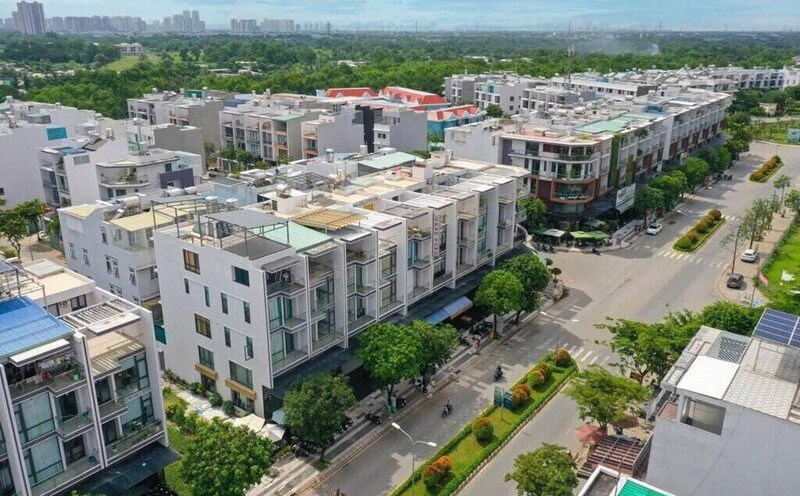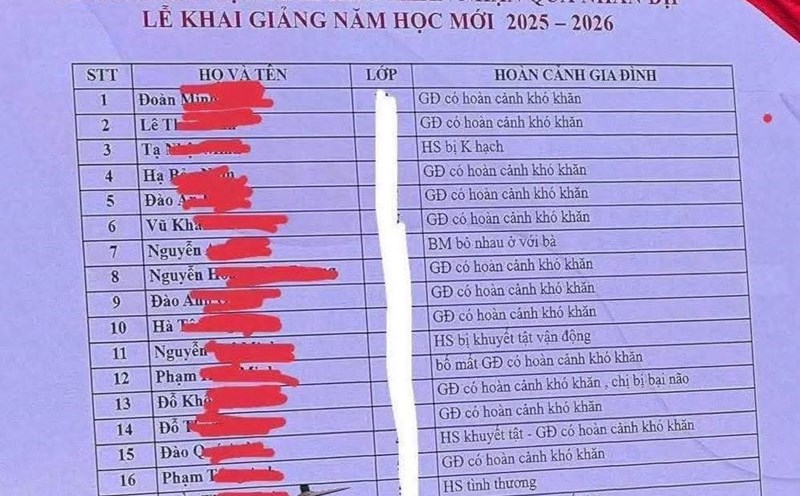Many customers who have purchased houses that were formerly in the resettlement fund of commercial housing projects are being disadvantaged in terms of rights because they are not granted pink books.
For example, the Binh Quoi 1 Apartment Project and Binh Quoi 2 Apartment Project invested by Saigon Construction Corporation Limited are typical examples.
Binh Quoi 1 apartment building has 105 apartments built on land that has been granted a Certificate No. CT00121 by the Department of Natural Resources and Environment (old) on February 23, 2010, with a land area of 1,590m2; long-term land use term; Binh Quoi 2 apartment building has 168 apartments, granted a Certificate No. CT00120 on February 23, 2010, land area of 3,128m2; long-term land use term.
On October 3, 2007, the Ho Chi Minh City People's Committee issued Official Letter No. 6588 approving Saigon Construction Corporation to continue implementing the apartment project at No. 636A Binh Quoi, now Binh Quoi 2 apartment building, and No. 553 Binh Quoi, now Binh Quoi 1 apartment building.
According to the above decision, Saigon Construction Corporation must be responsible for allocating at least 20% of the housing fund (apartment apartments) to create housing funds for resettlement for households affected by the Binh Quoi - Thanh Da New Urban Area project.
Up to now, the above two projects have been completed and handed over for use. However, Saigon Construction Corporation has sold 100% of the apartments in the 2 apartment buildings, including 20% of the apartments to resettle households affected by the Binh Quoi - Thanh Da New Urban Area project according to Official Letter No. 6588.
Up to now, home buyers of the two projects have not been granted pink books. Recently, Working Group 5013 led by Director of the Department of Agriculture and Environment of Ho Chi Minh City, Mr. Nguyen Toan Thang, had a meeting with the investor to consider removing obstacles to issue certificates for these projects.
Mr. Nguyen Toan Thang has agreed to issue pink books to home buyers in the two apartments mentioned above. Regarding the 20% resettlement housing fund, Mr. Thang suggested that the investor synthesize legal documents for the Department of Construction and the Ho Chi Minh City Land Registration Office to clarify the obligation of 20% of the resettlement housing fund if the locality has a need.
These two projects are just a few of dozens of housing projects that were once part of the resettlement fund in Ho Chi Minh City waiting to be resolved.
According to the report of the Ho Chi Minh City Department of Construction, the city is currently facing a series of commercial housing projects that have been approved in principle since 2003 - 2005, but have not been able to issue books to home buyers due to legal problems related to resettlement obligations.
For example, the case of Duong Hong Housing Construction and Trading Joint Stock Company, the investor of the 9B4 - 9B8 residential project in Binh Hung commune, Binh Chanh district before. The project was allocated land by the Ho Chi Minh City People's Committee in 2004, with a total of 254 apartments, of which 25 apartments are subject to 10% regulation of land fund. To date, 229 apartments have been granted pink books, the remaining 25 apartments are still "suspended" even though the project has completed 100% of the technical infrastructure.
A similar situation occurred with the Riva Park project (formerly District 4) invested by Vietcomreal. Although the locality confirmed that there is no need to buy back 150 resettlement apartments and the investor has sold them to the people, to date, these apartments have not been granted a certificate due to the issue of Directive 7.
It is known that these projects are part of the investment program to build 30,000 resettlement apartments according to Directive 24 2004, when the city encourages construction enterprises to complete the housing fund in the project and resell it to the city according to the construction cost plus standard profit according to regulations.
The projects allocated land in the above period all show the content of binding the investor's responsibility for reselling the apartments in the project to the city to serve the resettlement goal.
However, after completion, many localities where the project is located confirmed that there is no longer a need to buy this housing fund, leading to the city agreeing not to buy back and assigning related units to review arising financial obligations.











